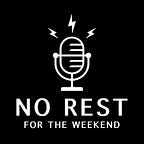Presley vs. Parker-ELVIS
By Maribeth Thueson
It’s not like we don’t know who Elvis Presley was. There have been a plethora of films about him, after all. I fondly remember the 1979 TV movie Elvis which turned Kurt Russell from “Disney kid” into a serious adult actor who went on to have a long and successful career.
The new movie Elvis ought to do the same for its star, Austin Butler. Butler is, in a word, amazing. He looks quite a bit like Presley, speaks like him, moves like him, dances like him, and even sings like him (the 50s Elvis is mostly Butler; the older Elvis is a blend of their singing voices). He reportedly spent a year working with vocal coaches and practicing, even building up his own sound-bite library from recordings, movies, and interviews with Elvis. The hard work was worth it because Butler disappears into the role and is totally believable.
The other thing Butler has in common with Presley is charisma. The camera loves him, and when he shakes and shimmies, you’ll understand why the girls in the film audience scream uncontrollably. Even during the later “white jumpsuit” years, he throws so much energy and electricity into his performance (women are throwing their underwear onstage by then), that he fairly lights up the Las Vegas strip all by himself.
Butler not only steals the show. He is the show. There are other people in the movie, too. Helen Thompson does a swell job as Presley’s overly close mother Gladys. Richard Roxburgh is his weak father Vernon, and Olivia DeJonge is cute as his wife Priscilla. David Wenham does a great job and straight-arrow country singer Hank Snow, and Kelvin Harrison Jr. has a nice turn as B. B. King. Tom Hanks is in the movie, too, as Presley’s long-time manager Colonel Tom Parker.
And there’s the rub. Parker, who was neither a Colonel nor named Tom Parker (his real name was Andreas Cornelius van Kuijk) narrates the movie, and he is not a reliable narrator. The codependent relationship between Parker and Presley is the focus of the movie, so some parts of Presley’s life, such as his many affairs, or the 31 movies he starred in, get short shrift. The relationship angle, however, opens up other portions of Presley’s life to new understanding.
For instance, Parker took up to 50 percent of Presley’s earnings, an unheard-of amount. He also coerced Vernon into being Presley’s business manager as a way of further controlling the money. Presley didn’t mind at first, as Parker acted as a confidante and second father to him. But when Presley later wanted independence from Parker’s control, he found that Parker’s hooks were so deeply embedded into his finances and his psyche that he was unable to break away. This leads to four rules for anyone contemplating a show business career: (1) always have your own lawyer, (2) don’t employ your relatives, (3) check up on your business manager, and (4) don’t trust any of them. Hanks as Parker persuading Presley to give up his autonomy of his own free will bears a strong resemblance, physically and emotionally, to Emperor Palpatine manipulating Anakin/Luke/Rey (take your pick) into embracing the Dark Side.
And while Parker is not a reliable narrator, neither is director Baz Luhrmann. So many of the episodes in the film didn’t happen in the way the film presents them. Did Presley really hear Little Richard, B. B. King, and big Mama Thornton all perform at the same Memphis club on the same night? No, but he surely did hear them and others like them during his youth and carried their influence, combined with that of country music, into his own sound. Was he friends with B. B. King? They did know each other, but were probably not bosom buddies. Did Parker offer to make Presley a star while they were riding on a Ferris wheel? Of course not. Did Presley meet producer Steve Binder (Dacre Montgomery) at the Hollywood sign to discuss his 1968 “comeback” TV special? No, the meeting was actually in Binder’s office. Did Presley fire Parker during a Vegas show? No, but he did fire him after a show, whereupon Parker actually did present Presley with a multi-million-dollar invoice for costs accrued.
On the other hand, Luhrmann’s fast-cutting editing style, which usually drives me bonkers, is used to good effect here, as he juxtaposes different scenes and time periods to show how they relate to each other.
But the main thing is Austin Butler’s tour-de-force, magnificent performance. And, of course, the music. You may have forgotten how good some of the songs were, and how terrific Presley was as a performer, even in his last, drug-addled years, but this thoroughly enjoyable movie, and Butler’s uncanny embodiment of Presley, will remind you of why Elvis was called The King.
Originally published at https://behindtherabbitproductions.wordpress.com on July 7, 2022.
